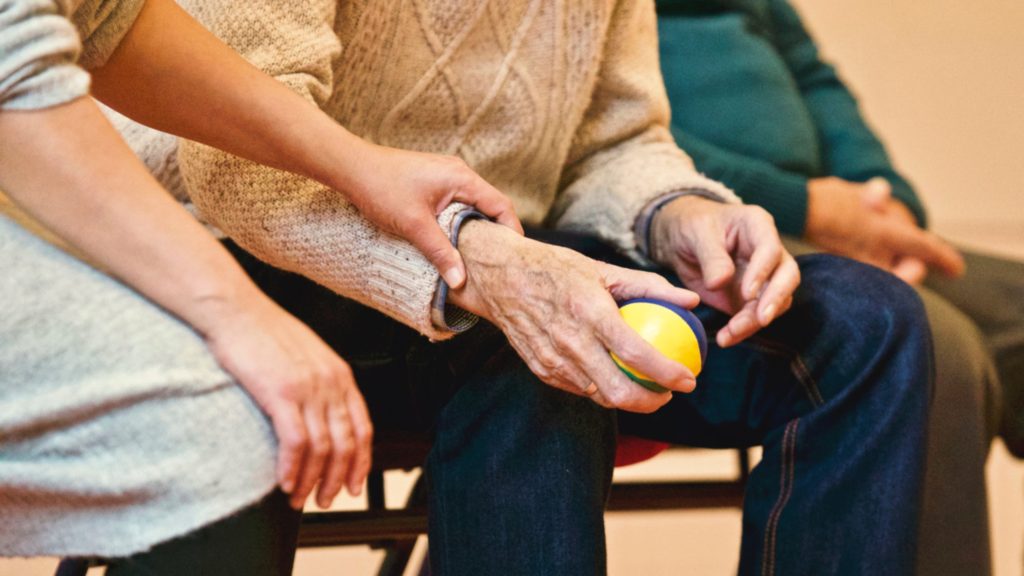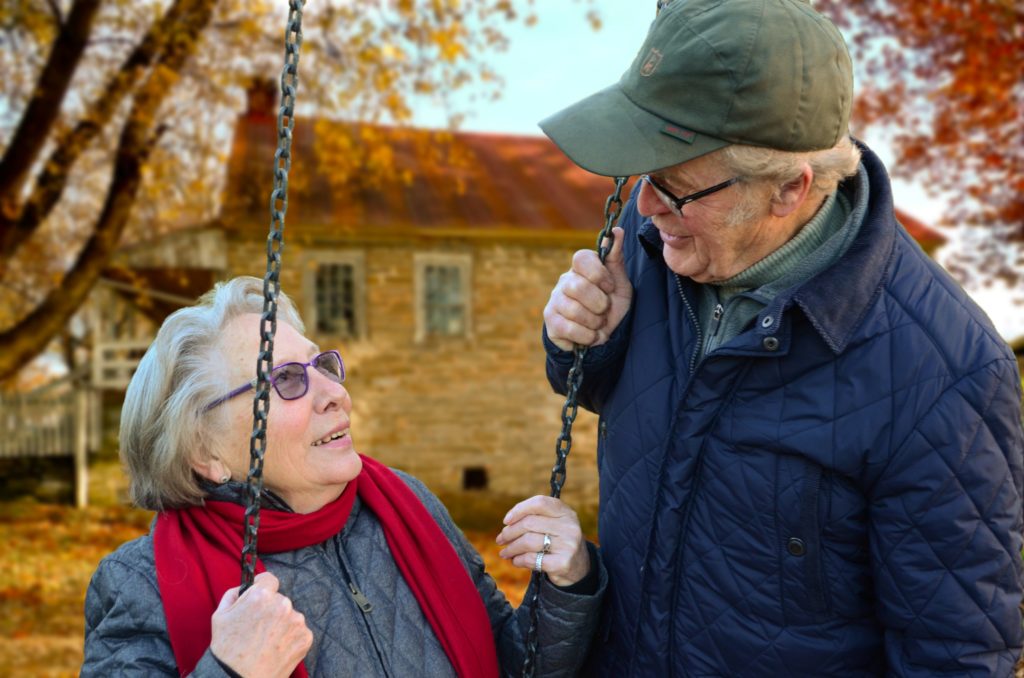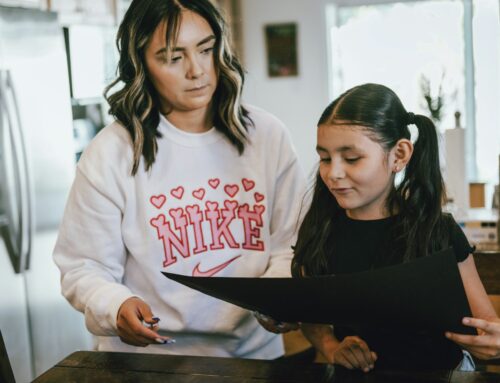In the past 50 years, the life expectancy in the United States has risen nearly 10 years, from around 70 years in 1969 (which yes, was already 50 years ago) to Around 79 in 2016 (the most recent year I could find data for). With advances in medicine and many general health practices that have improved in recent years, we are living longer and longer.
 However, we are not always thriving and this can mean many years of struggling health and mental decline. For our families, then, this means that there will be many changes that occur that can cause stress and the job of caregiving will fall onto their children and grandchildren. With the increase in medical complexity of the end of life comes a host of stresses that can make things more difficult to provide good care for love ones.
However, we are not always thriving and this can mean many years of struggling health and mental decline. For our families, then, this means that there will be many changes that occur that can cause stress and the job of caregiving will fall onto their children and grandchildren. With the increase in medical complexity of the end of life comes a host of stresses that can make things more difficult to provide good care for love ones.
Perhaps this is you reading this. Maybe it’s a parent or grandparent who you are happy is still around but who is requiring a lot of medical attention. Perhaps they are beginning to show signs of dementia or are in later stages of Alzheimer’s. This is a stressful experience and can bring up a host of emotions that complicate things and may affect your motivation to be their caregiver in the first place.
My hope is that the following paragraphs will help to normalize this experience for you and hopefully give you some tools and expectations that can help you navigate this period of life. Let’s take a look at three common problems that all geriatric caregivers should be aware of, then look at how you can get support in navigating these problems.
Transitions are hard
In general, transitions are hard. We tend to have a sort of “life inertia” where we like to keep going in the same direction that we have been going. It is adaptive to have routines and not have a lot of fluctuations in our lives. However, when issues do arise, we have trouble shifting gears and the process of transition can be difficult to handle.
In my practice, most everyone I see is in the midst of a transition, and this is for a reason. Specifically, around family issues, there is a family lifecycle and its transition points are prime for causing some difficulty. We can think about this lifecycle as starting with launching from your family of origin. It’s a transition period in which you are working on establishing yourself and figuring out who you are.
Next, we work on pairing off and starting our own families. Once we have established who we are, it can be a struggle to try and find someone who matches us. Once we have established this connection, many often move onto having children. This has its own host of obvious struggles but also includes things like infertility and managing familial expectations.
Now we move into the life stages where parents and children can be experiencing different sides of the same issue. For the elderly parents, transitioning out of work into retirement and then ailing health is a normal, difficult process.
For the children of elderly parents, they likely have children of their own who are becoming teenagers and find themselves managing both the problems associated with adolescence and their own parent’s struggles associated with geriatric issues.
 For caregivers of those going through medical and mental health issues associated with old age, they find themselves often at the intersection of three life cycle stages. They have their own transition as parents, as well as what their children are going through, and then what their parents are going through.
For caregivers of those going through medical and mental health issues associated with old age, they find themselves often at the intersection of three life cycle stages. They have their own transition as parents, as well as what their children are going through, and then what their parents are going through.
All of this converges and we can definitely say, transitions are hard and this involves three at the same time! I really want to highlight that it is normal to feel overwhelmed, unprepared, and maybe even inadequate. You didn’t get the training for this and yet you still have to manage your life and the lives of some of those around you.
I would encourage you by saying this – you are not alone and you are not the only one going through this. It’s a normal transition period and we should expect our transitions to be difficult!
Physical health affects mental health
I often will talk with clients about their stress capacity. One way to think of it is that we all have a capacity for stress, and let’s think of it as a cup. All sorts of different stressors pour into the same cup. These can be environmental, such as stress at work, an angry boss, or seeing politics on TV.
They can be internal stresses, such as worries or negative self talk. They can be relational as well, as when we are in conflict this is an incredibly stressful experience. But one other realm that fills the same stress cup is physical health.
Basically, when we are sick or not feeling well our capacity goes down. In total, everyone has their own capacity for stress; their own sized cup. All stress goes in the same cup, and issues occur when we start to “overflow.” We have two options, then, to either grow our cup or pull some of the stress out of the cup.
We might not be able to pull the stress out that is giving us the biggest headache, but since it’s all about capacity perhaps we can pull something else out (table a project that can wait, for example) or increase our capacity via things like mindfulness, prayer, and meditation. Filling ourselves with good nutrition is another excellent way to increase our stress capacity!
So let’s think, then, about how the physical effects of aging affect the mental health of our geriatric populations. At the surface level, the more stress we have the more issues we have. Physical health is a stress, so it’s going to impact mental health.
 When mental health declines, the motivation to take care of our physical needs declines as well. This can create a vicious cycle of a negative feedback loop. Therefore, we must address how these two realms are impacting each other. Further, it can help physical health to address mental health and vice versa.
When mental health declines, the motivation to take care of our physical needs declines as well. This can create a vicious cycle of a negative feedback loop. Therefore, we must address how these two realms are impacting each other. Further, it can help physical health to address mental health and vice versa.
As our geriatric population ages, many suffer from dementia as well. Various types of dementia exist, but they affect both a cognitive and physical decline. If we think of the brain as our control center for all our thoughts and bodily functions, it makes sense to think of dementia as a decline in brain functioning.
They might lose motor skills as well as interpersonal skills. This has the unfortunate effect that as someone is declining mentally, they may begin to have a new and unfamiliar personality. Further, they could become downright rude and mean. This can have the effect that their caregivers’ motivation and compassion decline as well. Again, this is all a normal experience while it can be frustrating.
It can be a frustrating experience
At this point, I want to reiterate one last time – being a geriatric caregiver can be a frustrating experience! You try to have compassion and care for this person you have loved your whole life, but suddenly they seem like a different person.
It can be hard to see them going through changes and to see them struggle to understand their new reality. On the flipside, you are also struggling to understand this new reality where your parent or loved one is going through a substantial change and you know that they are not going to ever be the same.
Sometimes declines are slow, sometimes they are rapid. Sometimes the mental decline is fairly linear, other times it feels like they lose functions in big chunks at a time, but then stabilize for a month or so.
As they experience decline, they often can begin to hallucinate or feel out of touch with reality. You may have the urge to try and correct them and help them see reality how it really is, but unfortunately, this is often futile, leading only to more frustration on you, the caregiver’s end.
Outside of handling their declining mental and physical condition, geriatric caregivers often fall into the responsibility of handling finances and legal issues that may be at play. Navigating Medicare and how they approach nursing homes and other medical costs can begin to drive you up the walls!
So while you are trying to maintain the connection with your loved one in your final years together, you too have to address the realities of managing estates. Let me give you a couple of things to consider as this process goes on.
First of all, engage in their world, rather than attempting to get it the other way around. If they see something in the room, ask them about it rather than tell them it’s not there. They see it. Don’t tell them otherwise, as this is going to only increase the frustration in the room. If they think that bad things are happening around them, understand that this is their reality and try and just be there with them rather than have them feel dismissed.
 Our first inclination is often to try to reorient our loved ones to reality, but in fact, this often only causes more distress. Try engaging them in their fantasy world they have begun to create and see if you can make it more satisfying and fulfilling with them.
Our first inclination is often to try to reorient our loved ones to reality, but in fact, this often only causes more distress. Try engaging them in their fantasy world they have begun to create and see if you can make it more satisfying and fulfilling with them.
Second, lean on your friends and family. It’s ok to have frank discussions and state the fact that you are annoyed with this person. Bottling that emotion will only lead to it bursting out at an unfortunate time. Further, trying to handle it all on your own will lead you to burn out and not enjoy the final years you do have together.
Take turns visiting and taking care of your loved ones if you can. If you are in a situation where it all falls on you, then take breaks as you can. It is a tiring process and often a thankless one.
Finally, if it feels like it is too overwhelming, know that it is ok to seek counseling and help for yourself. As I stated at the beginning, life cycle changes are some of the most common issues I address in counseling.
Often this is a period that would be a good time for family counseling as well. The process of grandma or grandpa growing older is something that affects everyone in the family system, from top to bottom. Hearing how this affects everyone differently, or the same is a good experience that helps you to feel more capable of working with your loved ones.
Counseling for yourself might seem like a luxury that you can’t spend the time on at this point, but let me remind you of the stress model – if your cup begins to overflow problems arise. Think of counseling as a place where you can both dump out some of your cup, and potentially find ways to make it larger in the first place.
Counseling for yourself can help you to be a better geriatric caregiver and make your live easier. While it feels like your focus should be on those around you, often you need to take care of yourself first in order to take care of others.
One last concept I would like to leave you with is compassion fatigue. This is something that all who are in a caregiving or service industry are susceptible to. As therapists, we talk to each other about how to not burn out. We lean on and rely on each other to help make sense of difficult cases and emotional things we hear.
The same goes for caregivers – you might feel like it has become so tiring taking care of your loved one and begin to feel jaded. Know that while this is real and normal, it is preventable. Take care of yourself and you will be able to take care of those you love.
“Stress Ball”, Courtesy of Matthias Zomer, Pexels.com, CC0 License; “Walker”, Courtesy of rawpixel.com, Pexels.com, CC0 License; “Care Chain Couple”, Courtesy of Pixabay, Pexels.com, CC0 License; “Grandma and Grandpa”, Courtesy of Pixabay, Pexels.com, CC0 License





